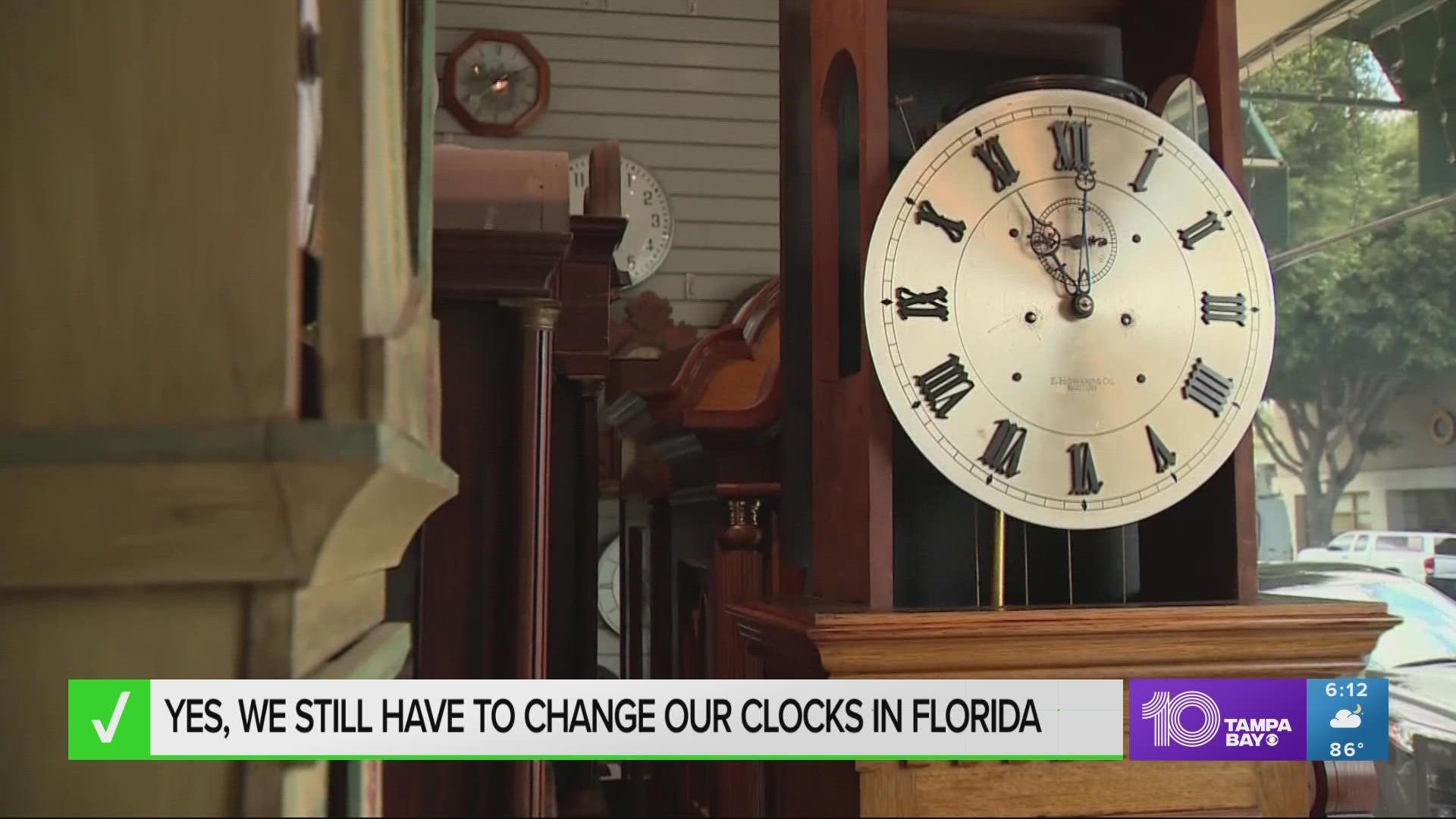TAMPA, Fla. — This weekend, most people can expect to "fall back" one hour as daylight saving time comes to an end.
The time change officially happens at 2 a.m. on Sunday, Nov. 5, even after Florida lawmakers voted to "lock the clock" in 2018 to keep daylight saving time permanent in the state.
It was officially approved by former Florida Gov. Rick Scott on March 23, 2018, but it has yet to receive Congress' approval. Until Washington, D.C., gives the OK to "lock the clock," Floridians will still have to shift the time during warmer months so that darkness falls at a later time.
The Sunshine State found itself in this situation because federal law only allows states to opt out of daylight saving time to stick with standard time. But since Florida wants to stay with daylight saving time permanently, congressional approval is needed.
If Congress comes around to the idea eventually, the time will be changed.
The U.S. Senate unanimously approved the Sunshine Protection Act, which was reintroduced in 2021 by Sen. Marco Rubio, R-Fla., on March 15, 2022. Rubio previously introduced the Sunshine Protection Act in 2019.
However, the bill did not become law. According to information about the bill on Congress.gov, it passed the Senate by unanimous consent in March 2022.
Just a year later, in March 2023, Rubio once again reintroduced the bill aiming to stick with daylight saving time.
No further action was taken on the bill, meaning it did not pass the House of Representatives, was not signed by the president and did not become law.
10 Tampa Bay's Josh Sidorowicz and VERIFY's previous coverage contributed to this report.

